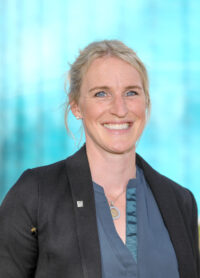Keynote talk: “Learning by Playing?! – Overcoming Cognitive Biases in Initial and Continuing Education as well as Industrial Decision-Making”
Abstract: Digitization, decarbonization, circularity, and the use of AI are just a few buzzwords representing the major transformations that the European industry is currently undergoing. They all share complex cause-and-effect relationships, high dynamism, information density, and inherent conflicts of objectives. These characteristics precisely trigger intuitive decision-making in humans rather than a more deliberate, mind-based approach. This intuitive decision-making is significantly influenced by simplification, emotionality, and expectations, and so-called cognitive bias effects systematically alter the expected quality of decisions. For this very reason, the content for teaching and learning in initial and continuing education must keep pace with the technical and organizational implications brought about by digitization, decarbonization, circularity, and the use of AI. For example, learners tend to interpret information in ways that confirm their existing beliefs. Decision-makers in industrial practice might be convinced that their current business partner is the best and, therefore, ignore or downplay information such as hints of delays or complaints. Serious games are known for fostering critical thinking. They invite the players to adopt alternative perspectives and create an experimental space, allowing them to at least theoretically consider working with a different partner. This presentation provides insights into how cognitive biases can inadvertently worsen learning and decision-making in complex transformation processes. It highlights the method of serious games and demonstrates how, on the one hand, learning in initial and continuing education and, on the other hand, industrial decision-making processes can be improved by reducing and avoiding these so-called cognitive bias effects.

Bio: Prof. Dr. Julia Arlinghaus holds the Chair of Production Systems and Automation in the Department of Mechanical Engineering at Otto-von-Guericke University Magdeburg. Moreover, she is the Director of the Fraunhofer Institute for Factory Operation and Automation. After her studies in Management and Engineering at the University of Bremen, Germany, and Tokyo University, Japan, she received her PhD degree in 2011 from the University of St.Gallen, Switzerland. She worked as a consultant for operational excellence and lean management at Porsche before she accepted the appointment as a Professor of Network Optimization in Production and Logistics at Jacobs University Bremen, Germany, in 2013 and 2017 as Chair of Management of Industry 4.0 at RWTH Aachen University. Together with her team, she consults companies in questions on risk-optimal supply chain design, implementation of production planning and control systems, transformation towards digital and efficient production processes, frugal innovation and its implications for the design and management of production and logistics processes in developing countries. Since 2021, she has been a Member of the German Council of Science and the Humanities, where she is the Chairperson of the Scientific Commission & Evaluation Committee.

